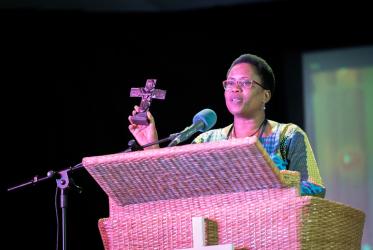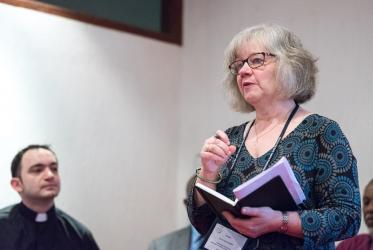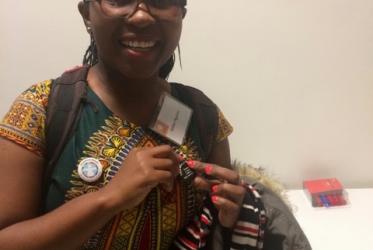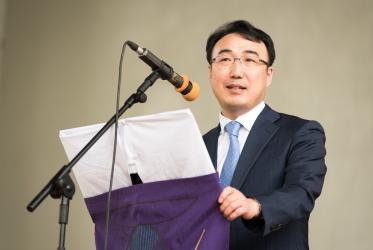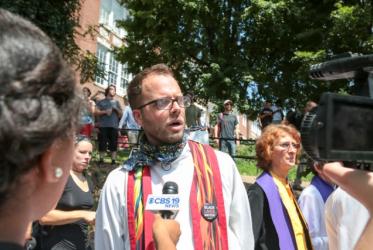Displaying 141 - 160 of 298
“Sending service” closes Arusha conference
13 March 2018
Un «service d’envoi» clôture la Conférence d’Arusha
13 March 2018
‘Sokoni’ transforms marketplace into mission
13 March 2018
Le «Sokoni» transforme le marché en lieu de mission
13 March 2018
WCC leaders offer insights at mission conference
10 March 2018
Indigenous youth want their voices heard
08 March 2018
Les jeunes autochtones veulent faire entendre leur voix
08 March 2018
Mission conference theme carries profound meaning
06 March 2018
Show up in fight against racism, is white American pastor’s plea
14 February 2018
#WCC70: Churches as “freedom agents”
12 February 2018
#WCC70: Les Églises, des «agents de la liberté»
12 February 2018

